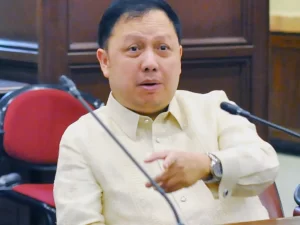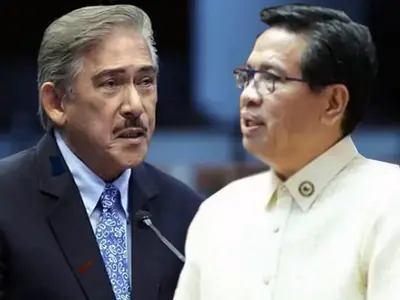
LAS Piñas Rep. Mark Anthony Santos has renewed his call for the immediate passage of the long-delayed Freedom of Information (FOI) Bill, following his strong support for the proposed restoration of public access to the Statement of Assets, Liabilities, and Net Worth (SALN) of public officials.
Santos said both measures are essential in promoting government transparency, accountability, and public trust.
“Transparency should not stop with the disclosure of SALNs,” Santos said. “The people have the right to access information about how their government operates and how public funds are spent. The FOI Bill will empower citizens to hold their leaders accountable.”
The FOI Bill, pending in Congress for more than three decades, seeks to institutionalize the constitutional right of the people to information on matters of public concern. It requires all government agencies to disclose records, contracts, and transactions upon request, subject to reasonable exceptions.
Santos emphasized that the passage of the FOI Bill will complement the Ombudsman’s move to reopen access to SALNs, ensuring a more comprehensive framework for openness and integrity in government.
Earlier, the Las Pinas lawmaker also called on the Department of Public Works and Highways (DPWH) to adopt a strict “one-strike policy” against its personnel implicated in corruption or irregularities.
He said swift, decisive action is needed to restore public trust and ensure infrastructure funds are spent properly.
“Restoring public access to SALNs is a major victory for transparency, but it should only be the beginning,” Santos added. “We must go further by enacting the FOI law so that transparency becomes the rule, not the exception.”
He also urged his fellow lawmakers to prioritize the measure this 20th Congress.
The current proposed FOI bill in the House (House Bill No. 2897) is authored by Reps. Edgar R. Erice (Caloocan), Adrian Michael A. Amatong (Zamboanga del Norte), Arlene J. Bag-ao (Dinagat Islands), Jaime R. Fresnedi (Muntinlupa), Cielo B. Lagman (Albay), Alfonso V. Umali Jr. (Oriental Mindoro), and Rep. Leila de Lima.
In the Senate, the counterpart FOI bill has been filed by Senator Francis “Kiko” Pangilinan. Senate President Vicente “Tito” Sotto III also refiled an FOI bill (“People’s Freedom of Information Act of 2025”) as well.
“It’s time to deliver on a promise that has been delayed for far too long,” Santos said. “Passing the FOI Bill will show that this Congress is serious about good governance and the people’s right to know.”
The original author of the Freedom of Information (FOI) Bill in Congress is the late Rep. Ernesto “Ernie” Ruffa of Bulacan, who first filed it in the 8th Congress (1987–1992) following the ratification of the 1987 Philippine Constitution.
The FOI Bill was intended to operationalize Article III, Section 7 of the Constitution, which guarantees the people’s right to information on matters of public concern.
Since then, multiple versions have been refiled in every Congress — among the more prominent later authors and champions were:
Rep. Lorenzo “Erin” Tañada III (Quezon) — principal author and long-time FOI advocate during the 14th and 15th Congresses.
Rep. Walden Bello (Akbayan), Rep. Teddy Casiño (Bayan Muna), and Rep. Neri Colmenares (Bayan Muna) — co-authors and vocal supporters during the Aquino administration.



